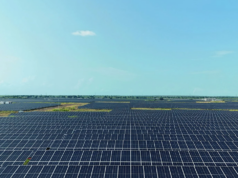SEAOIL Philippines, Inc. is weighing the impact of the trade war between the US and China and how it will affect the independent oil company’s expansion plans next year, company officials said.
“So far it’s inconclusive. The awareness is there and the uncertainty is certainly increasing, but the actual impact can’t still be quantified. So we’re keeping an eye on it,” Glenn L. Yu, Seaoil chief executive officer, told reporters on Thursday.
He said the company would want to continue expanding but at the same time it was studying what might happen as a result of the trade war. He added Seaoil would know the impact by the fourth quarter when next year’s capex is presented to the company’s board.
Last year, Seaoil had a capex of P811 million, up 54.8% from P524 million in 2017. He declined to disclose this year’s budget.
Jose Jaime V. dela Fuente, Seaoil vice-president for corporate and consumer marketing, agreed that the trade war is one of the factors affecting expansion plans.
“It’s safe to say there are plans to open [new retail outlets] but the industry is very volatile so we don’t really know whether they will push through or not,” he said.
Mr. Yu said the trade war is a concern that was nonexistent 18 months ago. Seaoil previously said that the pace of its expansion accelerated with the entry of a foreign partner.
In December 2017, the company and Caltex Australia Petroleum Pty Ltd. announced the latter’s acquisition of a 20% interest in Seaoil in a deal that was meant to be a long-term partnership.
Earlier this year, Seaoil said it expected to open three to five fuel retail stations a month in 2019.
Mr. Dela Fuente earlier said that before the capital infusion from Caltex Australia, Seaoil was averaging about one or two new fuel stations a month. He had said there was sort of a mutual agreement between the companies “on the plans to aggressively expand the retail business.”
Mr. Yu said the US-China trade war “is affecting not just both countries, but even those in the periphery because ultimately what happens to both of them, if they catch a cold, the Philippines might go to the ICU (intensive care unit).”
“I definitely think it’s playing in the minds of every player because we’re talking about the two largest countries that are the consumers of oil. If something happens in either of their economies obviously it will affect [us],” he said.
As a petroleum product retailer, Seaoil would be “greatly affected” by the trade war and its “trickle down” effect on the products that the Philippine exports to China, which the foreign country uses as components to export to the US that would have an impact on local demand.
Mr. Yu said if demand all of a sudden disappears, “then we have all these capex in the pipeline.” — Victor V. Saulon



